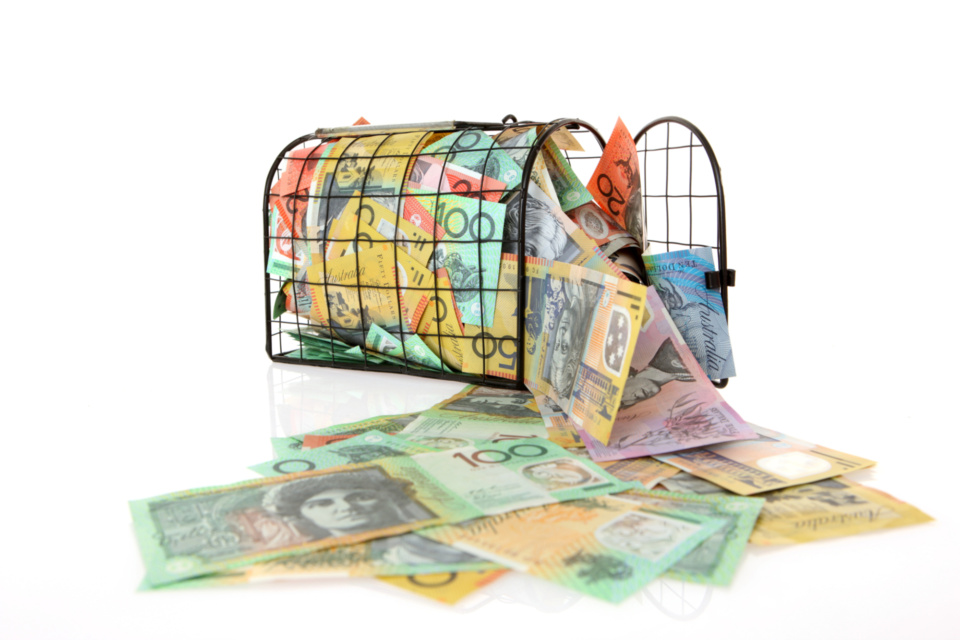
2025 Survey results: trends and takeaways from Funding Centre members
Posted on 18 Feb 2026
At the end of 2025, the Funding Centre surveyed its members for the second consecutive year to…
Posted on 26 Aug 2025
By Nick Place, journalist, Institute of Community Directors Australia

For charities that sell tickets to fundraising events, using an online ticketing system or an off-the-shelf platform is usually the answer to managing ticket sales. But the Northern Territory’s Commissioner of Consumer Affairs, Traci Keys, has warned that those platforms can come with problematic features.
An arts organisation, disability support network or similar small entity that wants to sell tickets or take donations might find itself using a platform with “dark patterns” functionality that pushes customers into paying for extra donations, even for entirely different organisations.
Keys’ warning came on the cusp of Scams Awareness Week, led by the National Anti-Scam Centre.
Of ticketing dangers, Keys said, “These small organisations might not have the skills in-house or might have brought in a volunteer to run the ticketing. They don’t know their online systems well enough to realise that there are these dark patterns. The one that I’ve seen a lot is where the consumer, when they’re purchasing a ticket, doesn’t say they want to donate any money; it just automatically gets added to the total at the end of the ticket. It’s often a small amount, so there’s a high risk that the consumer doesn’t even notice that it’s been added to their bill, or they just think it’s something like an administrative fee. It’s been added to that total amount.”

Another easy-to-miss dark pattern is one where the customer is signed up to making regular donations, rather than the single donation they had intended to make.
“The one I see most commonly is a one-off charge and it’s usually quite a small amount like $5,” Keys said. “The issue for the consumer is more they’re feeling that they have been tricked than the actual loss of money, but it can also be if it’s a subscription. It may be that they want to donate, say, $20, and they don’t realise that when they sign up, then in the fine print, they’re actually agreeing to an ongoing commitment to provide money for that charity.”
For charities and similar well-meaning organisations, the reputational damage from such platform functionality can be much more significant than the benefit of any extra money raised, assuming the money does go back to them.
“A lot of the organisations I see, their core focus isn’t necessarily how to go about funding and they might be small, which means that they may not have the skills in-house to develop the online platforms that they need, particularly for ticketing. They might be relying on expertise that they bring in as a volunteer, just trusting that that person is making the right judgments. They probably don’t ask and don’t even think to look,” she said.
“Because their focus is not on those online ticketing systems or an online subscription for fundraising that they use, it means that the people responsible for developing those things, whether an outsourced organisation or somebody in-house, is not someone who’s actually escalating the issues to the board. It becomes such a norm in some settings that they don’t think to even question it. It doesn’t get escalated to the board because they look around them, and they say, oh well, everybody else is doing this, so it must be okay.”
“I think it’s actually the higher risk with charities: that nobody speaks up, but consumers are unhappy, they don’t like being tricked, and they just stop giving money to that organisation or they stop attending their events or functions.”
Keys said that as the Northern Territory’s Commissioner for Consumer Affairs, she saw the complaints about dark platform “tricks” end up on her desk. “If there is a complaint made [from a customer], reputational damage may follow from that, particularly with charities.” She said the issue prompted potential supporters to wonder how much a charity cared about ethics.
If customers didn’t complain, on the other hand, instead just feeling that they’d been tricked and resolving not to support the organisation in the future, that was a worse outcome, she said. “I think it’s actually the higher risk with charities: that nobody speaks up, but consumers are unhappy, they don’t like being tricked, and they just stop giving money to that organisation or they stop attending their events or functions. The money stops coming in, and the charity doesn’t actually realise that’s why it’s happening.”
“Dark patterns” are a known danger online, where websites or apps nudge, manipulate or trick users into spending more money than they had planned, or ask for excessive personal data. A variation can be seen in the real world, when charity fundraisers on the streets, push too hard, “such as asking people passing by: ‘Don’t you care about sick children?’”
Keys added that it was problematic for any charity to align itself reputationally with online shopping or other enterprises that use these techniques for pure profit-making. “Some charities might form a view that the use of dark patterns is for a good cause and therefore it’s okay,” she said.
Keys said she would advise any not-for-profit, charity or small organisation worried about the risks of using online ticketing systems to ask the necessary questions before committing, and to have a clear understanding of every aspect of the purchasing process for customers.
“At the moment, we’re in this environment where [dark pattern selling] is undesirable and unethical practice, but the reality is that we’re six to 12 months away from it being illegal, because the federal government is looking at bringing in laws that will make these practices unlawful,” she said.
“I actually think, for small charities, this will help them because it will give them some agency to go back to different tech companies that they might work with and demand a different standard.”
Ethical online fundraising platforms, such as GiveNow (which is part of OurCommunity) do not add any extra fees on top of the advertised ticket cost, so a $100 ticket costs exactly that. GiveNow’s Cathy Truong said: “When it comes to donations, donors may be offered the chance to pay a platform fee of a few dollars, but should always be able to easily opt out.”

Posted on 18 Feb 2026
At the end of 2025, the Funding Centre surveyed its members for the second consecutive year to…

Posted on 12 Feb 2026
Our special NFP trends report distils the views of more than two dozen experts.

Posted on 11 Feb 2026
Australia’s not-for-profits need strategic investment by the federal government to support the…

Posted on 04 Feb 2026
In this time of escalating climate impact, the head of Australian Ethical Foundation, Kate…

Posted on 27 Jan 2026
With a laser focus and the right tools, this volunteer-led NFP is unlocking life-changing…

Posted on 14 Jan 2026
As the holiday chatter fades and the new year begins, it’s the ideal time for organisations to plan…

Posted on 13 Jan 2026
This page provides information about financial assistance available to not-for-profit organisations…

Posted on 10 Dec 2025
The Australia Institute has called on the federal government to force Australian businesses to be…

Posted on 11 Nov 2025
Australian charities are curious about how to use artificial intelligence and are increasingly…

Posted on 11 Nov 2025
Thousands of not-for-profit organisations are being held back by an outdated, rigid and complicated…

Posted on 11 Nov 2025
New grants worth $36 million aim to help farmers and farming communities prepare for drought by…

Posted on 05 Nov 2025
The number of registered charities in Australia ballooned in the last financial year by 4621 new…